Climate Change and Environmental Sciences Committee Reports
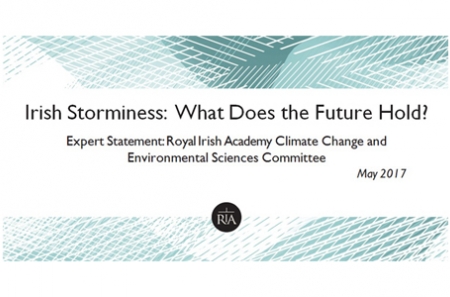
Irish Storminess: What does the Future Hold?
01 August 2017Irish Storminess: What does the Future Hold?
Download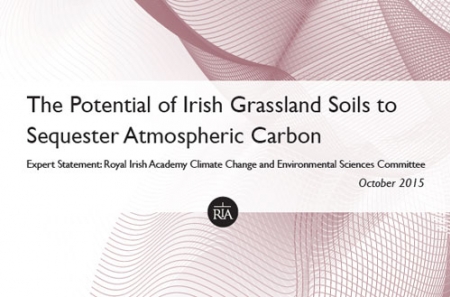
Expert Scientific Statement: The Potential of Irish Grassland Soils to Sequester Atmospheric Carbon
01 March 2016This statement focuses on soil carbon. It reviews the international literature that verifies that temperate grasslands sequester atmospheric carbon into the grassland biomass and soil.
Download
12th Scientific Statement: Climate Change and the Food Chain
01 January 2014This statement explores the significance of greenhouse gas emissions that arise through the agri-food chain.
Download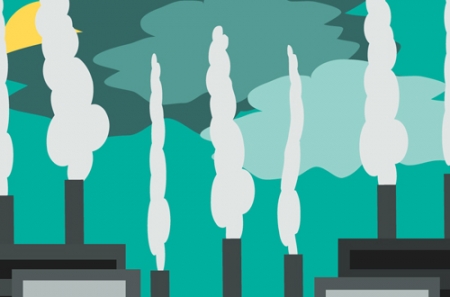
11th Scientific Statement: Air Pollution: Obscuring the Full Extent of Global Warming
01 January 2013This Statement predicts, using the NUI Galway regional climate model, future European-scale, and in particular, Irish-scale temperature changes as Greenhouse gas emissions continue to rise towards the year 2100.
Download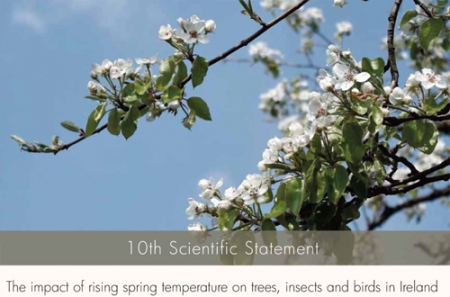
10th Scientific Statement: The Impact of Rising Spring Temperature on Trees, Insects and Birds in Ireland
01 January 2012This statement examines the impact of rising spring temperatures on the environment and wildlife in Ireland.
Download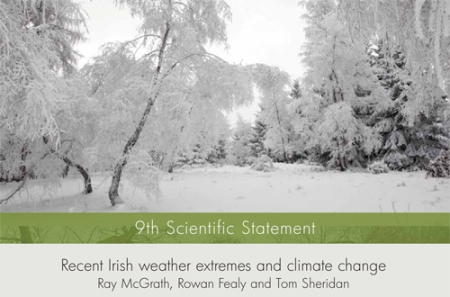
9th Scientific Statement: Recent Irish Weather Extremes and Climate Change
01 January 2010This statement takes a look at the recent Irish weather extremes in relation to climate change.
Download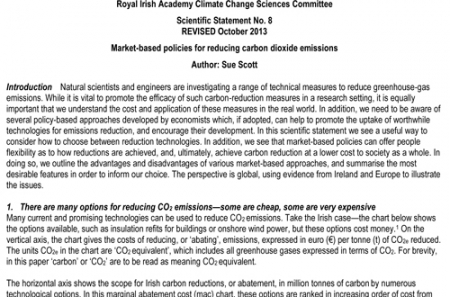
8th Scientific Statement: Market Based Policies for Reducing Carbon Dioxide Emissions - Revised
01 January 2009This Statement outlines the main market based initiatives and their suitability for reducing carbon dioxide emissions.
Download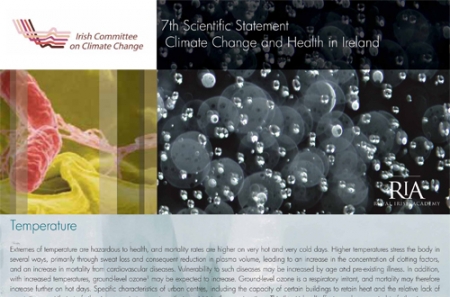
7th Scientific Statement: Climate Change and Health in Ireland
01 January 2008This paper focuses on the change of temperature and food and water-related diseases that are associated with Climate change.
Download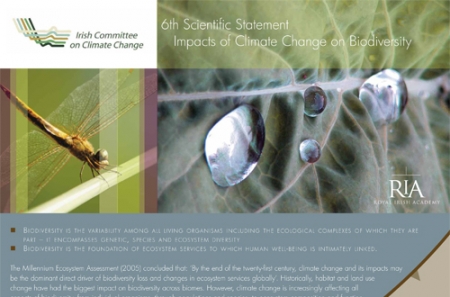
6th Scientific Statement: Impacts of Climate Change on Biodiversity
01 January 2007This paper examines the Impact climate change has had on Biodiversity focusing particularly on Ireland.
Download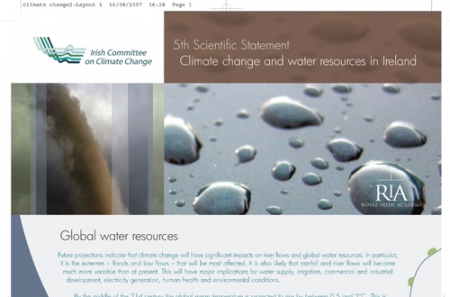
5th Scientific Statement: Climate Change and Water Resources in Ireland
16 August 2007This paper examines how climate change affects river flows and global water resources and the consequences for Ireland and suggestions policies that could reduce Ireland’s vulnerability.
Download
4th Scientific Statement: Greenhouse Gasses: An Irish Perspective
01 January 2005This paper is a background to the output of greenhouse gasses since the Industrial revolution it focuses on an Irish perspective.
Download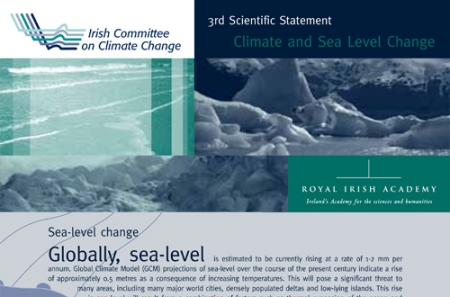
3rd Scientific Statement: Climate and Sea Level Change
01 January 2004This paper focuses on the relationship between climate change and rising sea levels, it evaluates the likely implications for Ireland and suggested policies that could reduce Ireland’s vulnerability.
Download
2nd Scientific Statement: Climate Change & Agriculture
01 January 2003This paper is based on threats and opportunities for Irish faming based on climate change projections for the middle of the century.
Download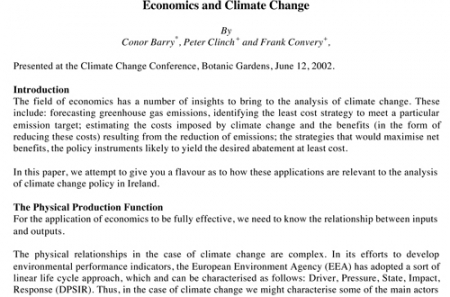
1st Scientific Statement: Economics and climate change
12 June 2002The paper forecasts greenhouse gas emissions, identifies the least cost strategy to meet emission targets; estimating the costs imposed by climate change and the benefits (in the form of reducing these costs) resulting...
Download